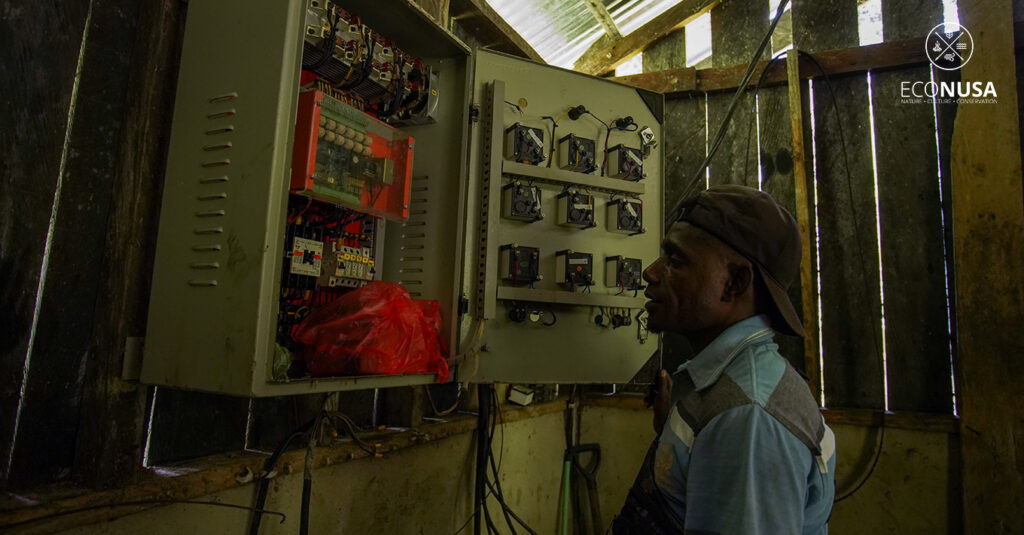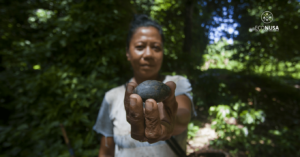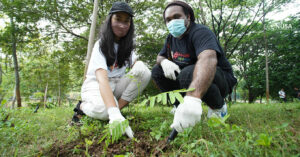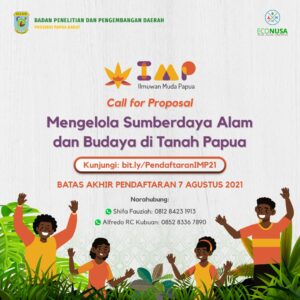
It has been few years that Moi Kelim Tribe in Malaumkarta and Suatolo Villages in Makbon District, Sorong Regency, West Papua Province, longs for electricity from the State-owned Electricity Company (PLN). However, their hopes eventually came true in 2018 from their own efforts when both villages independently constructed electricity from micro hydro power plant from the upstream of Kalawagan River.
“Following the micro hydro power plant, the community is now content because children can study well at night. They can use laptop, cellular phone. The community is happy with the technology,” said Jefri Mobalen, the Village Head of Malaumkarta, on 31 January 2022.
Jefri recalled his memories few years ago when he came up with ideas from villagers to build power plant. They then hired experts from Tana Toraja Regency, in South Sulawesi, and Sentani in Papua Province. They conducted a survey in search for suitable water source, water debit, and landscape level.
Read also: Education and Culture Ministry to Build Customary School in Malaumkarta with EcoNusa
Both experts gave the same findings. “The community eventually opted for Kalawagan River to generate power,” Jefri said.
To kick off the process, the community blocked the water and channeled it to the reservoir. They also submitted the detailed budget to the village authority which is included into the village development plan.
Based on the local discussion, Malaumkarta and Suatolo Villages could collect Rp600 million village fund in 2016 and 2017 to construct the micro hydro power plant installation.
The sense of belonging
The local communities’ efforts are paid off. They have micro hydro power plant that could provide electricity to those villages. To finance the operation of power plant, the community agreed to collect regular payment based on their electricity consumption.
Read also: Papua, Maluku, We Can, Anything Possible
“There is no electricity meters. We calculate the total domestic usage from the number of lamps, watt power, television and refrigerator sized,” said Jefri.
The service payment is based on the condition of a family. For the poor families, it costs Rp10,000 to Rp30,000 per family. “But families that have decent life pay Rp50,000 up to Rp100,000 every month. Any families that would pay more, due to their sense of belonging are welcome,” added Jefri.
The monthly payment was collected by the local youths with transparent report presented to the community. Each month it could collect about Rp3 – 4 million to finance the turbine maintenance. Jefri explained, there have been more or less 100 customers from both villages. It is planned to have a more professional management in the near future.
Read also: EcoNusa Outlook 2022: Approach of Rasa for Eastern Indonesia
The presence of electricity and light has benefited both villages. “Now the community could grow economically with small enterprises that have emerged,” said Jefri.
Meaning of Forest and Water
Jefri said it is important to safeguard water resource and forests. “Human life depends on water resource in the mountain. If there is no river, no human can live. So, we have to preserve the water from contamination or impacted by landslide. The community should nurture the nature to prevent from polluting the river,” he said.
The indigenous people of Moi Kelim realized the importance of forest and water sustainability. It includes ocean with its potential for tourism in both villages. If forest and water are well preserved, turbine will keep running and it provides electricity.
Read also: Egek Local Wisdom, Struggle to Protect Malaumkarta Raya Forests
Jefri admitted people in Malaumkarta used to be the major predator for forest and ocean resources. But then the community was aware that they should conserve the nature and thus a local wisdom called egek culture arises. Egek is deemed the local wisdom of Moi Kelim Tribe to conserve ocean and fisheries sustainability.
“Egek emerges from the community’s collective awareness. Malaumkarta Raya used to become major predator for turtle and dugong. Let alone when there were traditional ceremonies,” said Yosias, the former Village Secretary of Malaumkarta Village.
Since 2001, egek has been imposed. Now all people have changed and prioritized the conservation of nature, dugong, and turtle. “None catches them now,” Yosias added.
Local wisdom in the village has lured tourism. “People from outside the villages pay some visits to Malaumkarta Raya owing to the community commitment to conserve the nature,” Jefri said.
Editor: Nur Alfiyah & Lutfy Putra









